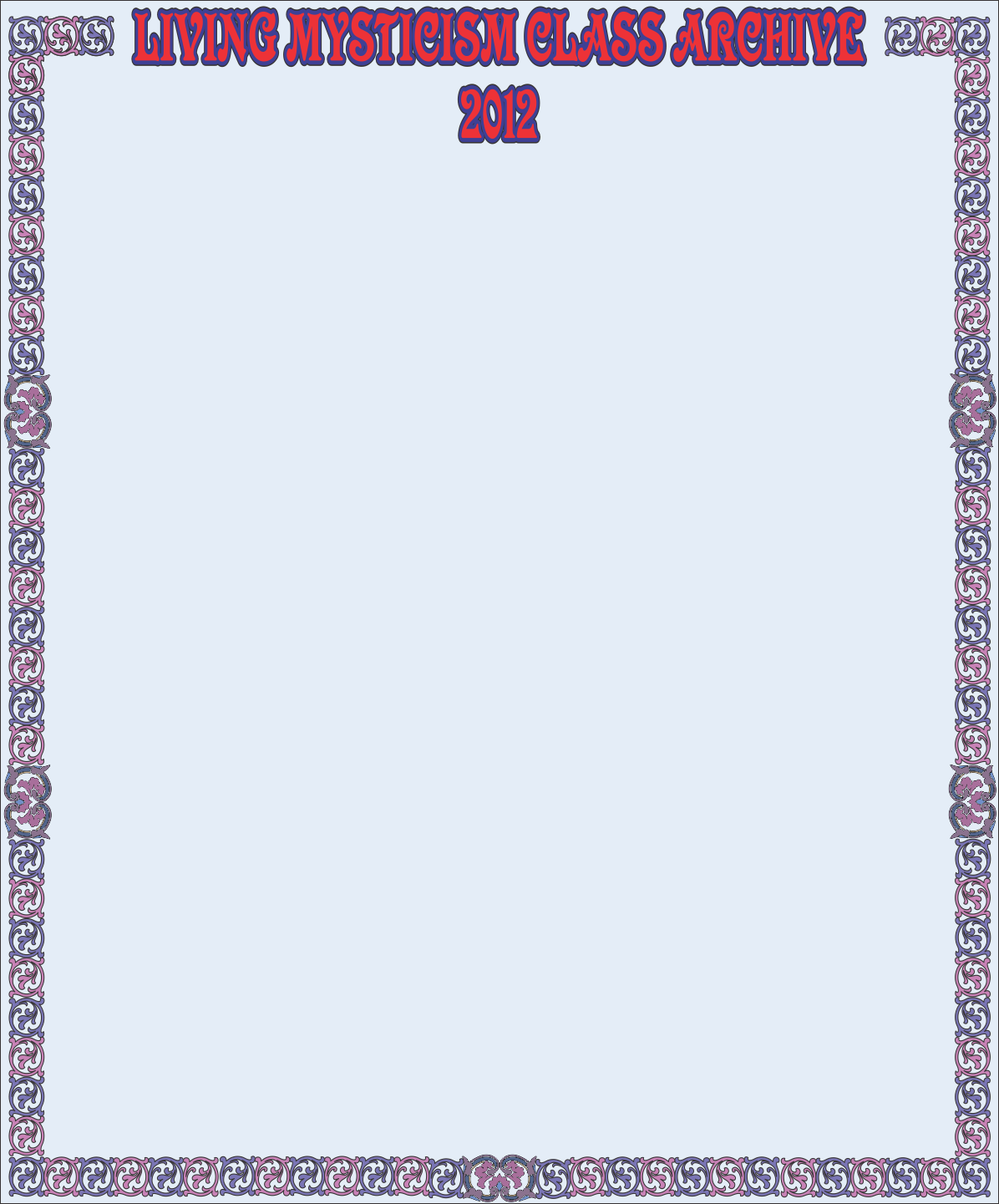

November 8th 2012
We have another week of spiritual challenge and understanding in this violently partisan election environment. The results may or may not be clear by Thursday class, but in any case, the challenge to understand does not stop there. My guidance says: "Don't worry about the election results. They may be less significant than you think." Like many others, I find that hard to believe, although I do believe there are severe challenges with either presidential winner.
Then there is the gruesome death of the two-year-old at the Pittsburgh zoo, a spectacle that will haunt many for the rest of their lives, with the blame game already in full force. As if the parents and the zoo personnel didn't have enough to deal with already, without everyone having to weigh in. What makes any of us so sure of our positions, myself included, that we take it upon ourselves to judge one side or the other at such breakneck speeds? Interestingly, the "mirror" is that of a mother compensating for the sight problems of her child that was apparently the initial physical basis for the accident, whatever else may have occurred.
In a polarised universe where, in mundane vernacular "accidents happen", or in scientific vernacular entropy or disorder exists, or in spiritual vernacular balance is going on way beyond anything our mortal vision can comprehend, shouldn't we slow down, step back, and, with less arrogance, seek to understand rather than to judge? Question, yes! But don't be in too big of a hurry to come up with conclusive answers. As I said last week, there are no shortcuts to vision, beyond an all embracing, all consuming experience of love, which we all fall short of, at least for much of, if not most of the time. "The choice to judge rather than to know is the cause of loss of peace." (ACIM Text: Chapter 3, Section VI, Paragraph 2.) Continuing: "Judgement is the process on which perception but not knowledge rests."
Perception is based on images, on archetypes and thought forms that are both individual and collective. No one should seek to rush to every image or thought that occurs to them, embracing it as absolute truth. Rather must we all observe our images and thoughts, our own as well as those of the collective, and seek to understand them as part of a collective whole or paradigm that makes up the world we experience. Other perceptions and experiences are possible. An oft quoted teaching from ACIM: "Seek not to change the world but rather to change your mind about the world". Our collective thinking is based largely on the Judaeo-Christian concepts of good and evil, which carries with it concepts of guilt and punishment. That paradigm needs to shift and to evolve, lest we destroy each other entirely.